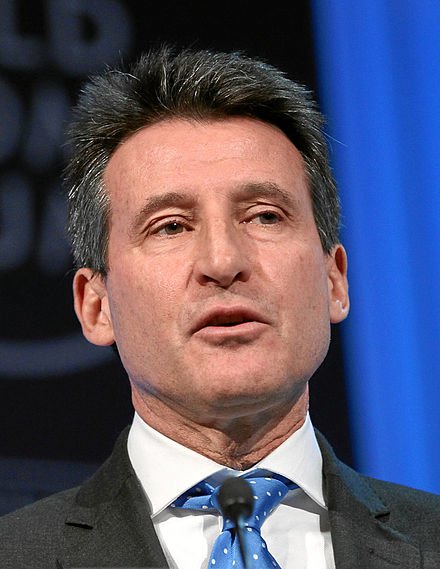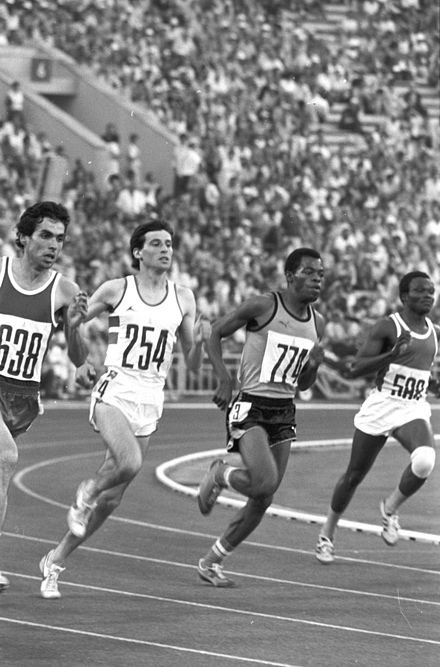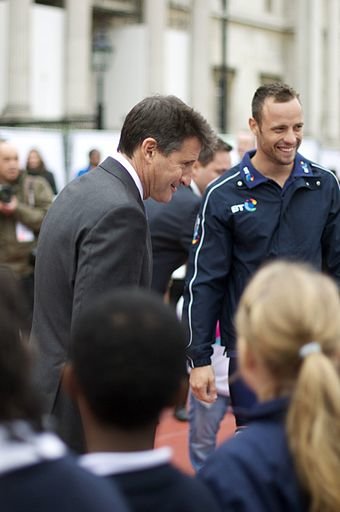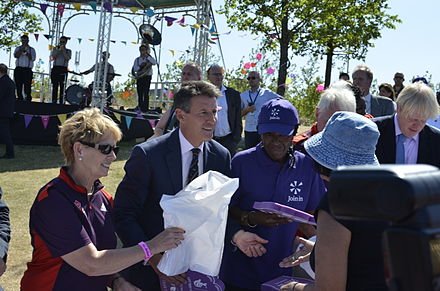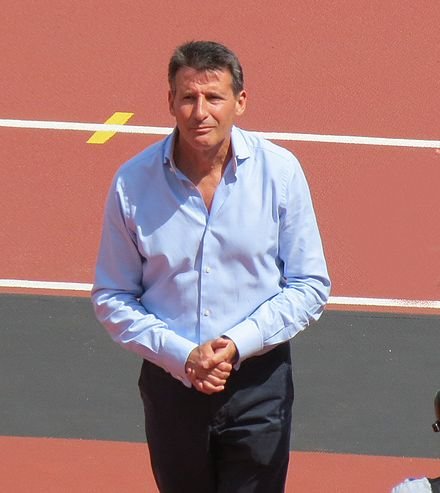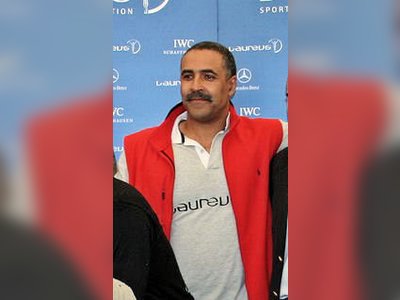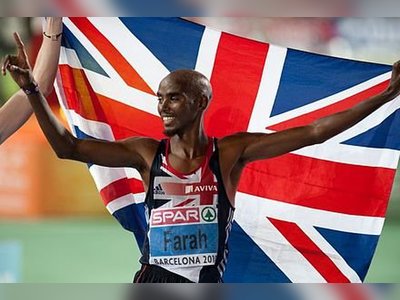British Heritage
Remember, Cherish, Learn.
beta
Sebastian Coe
Contribution of Sebastian Coe to British Heritage.
Sebastian Newbold Coe, popularly known as Seb Coe, has left an indelible mark on British Heritage through his remarkable achievements as an athlete, his significant contributions to sports governance, and his instrumental role in bringing the prestigious 2012 Summer Olympics to London. As a middle-distance runner, Coe's athletic prowess and world records made him a true icon in the world of sports, and his subsequent roles in politics and sports administration further solidified his legacy.
Sebastian Coe's athletic career is adorned with numerous accolades and records that have had a lasting impact on British Heritage. Born on September 29, 1956, in Hammersmith, London, Coe showed early promise as a middle-distance specialist and quickly rose to prominence. He won four Olympic medals, including the gold medal in the 1500 meters at the 1980 and 1984 Olympic Games. Coe's fierce rivalries with fellow Britons Steve Ovett and Steve Cram during the 1980s captivated the nation and elevated middle-distance racing to new heights.
One of the most significant contributions Coe made to British Heritage was his outstanding performance in 1979, where he set three world records in just 41 days. He achieved world records in the 800 meters, the mile, and the 1500 meters, becoming the first person to hold these three records simultaneously. Coe's dominance in the middle-distance events brought pride and glory to the nation, solidifying his position as one of the greatest athletes of his time.
Notably, Coe's world record in the 800 meters, set in 1981, remained unbroken until 1997, showcasing his unparalleled talent and endurance. His ability to consistently rank number one in the world at both 800 meters and 1500 meters in multiple years further underscored his impact on the sport and his contribution to British Heritage.
After retiring from athletics, Coe transitioned into politics and served as a Conservative Member of Parliament from 1992 to 1997 for Falmouth in Cornwall. In 2000, he was honored with a Life Peerage, becoming Baron Coe, of Ranmore in the County of Surrey. His political career added another dimension to his legacy, demonstrating his commitment to public service and his willingness to contribute to the betterment of British society.
However, it was in sports governance that Coe truly left an enduring mark on British Heritage. His crowning achievement came when he headed the successful bid to host the 2012 Summer Olympics in London. As chairman of the London Organising Committee for the Olympic Games, Coe played a pivotal role in ensuring the successful execution of the event, which remains one of the most memorable moments in British sports history.
The 2012 London Olympics were a resounding success, showcasing British excellence in sports, culture, and organization. Coe's vision, leadership, and diplomatic finesse played a crucial role in securing the International Olympic Committee's backing for London's bid. The event not only brought together athletes from around the world but also showcased British hospitality, culture, and heritage on a global stage.
Coe's commitment to promoting sports at all levels and encouraging participation resonated deeply with the British public. His efforts to inspire the nation to embrace sports as a way of life had a lasting impact on British Heritage, fostering a new generation of athletes and sports enthusiasts.
Throughout his illustrious career, Coe has been the recipient of numerous honors and awards, further solidifying his place in British Heritage. He was appointed Member of the Order of the British Empire (MBE) in 1982, and later became an Officer of the Order of the British Empire (OBE) in 1990. His contributions to the London 2012 Olympic and Paralympic Games earned him the prestigious Order of the Companions of Honour (CH) in the 2013 New Year Honours.
Moreover, Coe has been celebrated and recognized by various sports organizations, including being presented with the first Prince of Asturias Award in the Sports category in 1987. He received an Olympic Order for his instrumental role in delivering the London 2012 Olympics and a lifetime achievement award at the Laureus World Sport Awards.
Coe's legacy as an athlete, politician, and sports administrator will forever be etched in British Heritage. His unwavering commitment to sportsmanship, excellence, and public service has left an inspiring and enduring impact on the nation's sporting landscape, making him a true champion of British Heritage.
Athletic Legacy and Contributions to British Heritage
Sebastian Coe's athletic career is adorned with numerous accolades and records that have had a lasting impact on British Heritage. Born on September 29, 1956, in Hammersmith, London, Coe showed early promise as a middle-distance specialist and quickly rose to prominence. He won four Olympic medals, including the gold medal in the 1500 meters at the 1980 and 1984 Olympic Games. Coe's fierce rivalries with fellow Britons Steve Ovett and Steve Cram during the 1980s captivated the nation and elevated middle-distance racing to new heights.
One of the most significant contributions Coe made to British Heritage was his outstanding performance in 1979, where he set three world records in just 41 days. He achieved world records in the 800 meters, the mile, and the 1500 meters, becoming the first person to hold these three records simultaneously. Coe's dominance in the middle-distance events brought pride and glory to the nation, solidifying his position as one of the greatest athletes of his time.
Notably, Coe's world record in the 800 meters, set in 1981, remained unbroken until 1997, showcasing his unparalleled talent and endurance. His ability to consistently rank number one in the world at both 800 meters and 1500 meters in multiple years further underscored his impact on the sport and his contribution to British Heritage.
Political Career and Sports Governance
After retiring from athletics, Coe transitioned into politics and served as a Conservative Member of Parliament from 1992 to 1997 for Falmouth in Cornwall. In 2000, he was honored with a Life Peerage, becoming Baron Coe, of Ranmore in the County of Surrey. His political career added another dimension to his legacy, demonstrating his commitment to public service and his willingness to contribute to the betterment of British society.
However, it was in sports governance that Coe truly left an enduring mark on British Heritage. His crowning achievement came when he headed the successful bid to host the 2012 Summer Olympics in London. As chairman of the London Organising Committee for the Olympic Games, Coe played a pivotal role in ensuring the successful execution of the event, which remains one of the most memorable moments in British sports history.
London 2012 Olympics and Beyond
The 2012 London Olympics were a resounding success, showcasing British excellence in sports, culture, and organization. Coe's vision, leadership, and diplomatic finesse played a crucial role in securing the International Olympic Committee's backing for London's bid. The event not only brought together athletes from around the world but also showcased British hospitality, culture, and heritage on a global stage.
Coe's commitment to promoting sports at all levels and encouraging participation resonated deeply with the British public. His efforts to inspire the nation to embrace sports as a way of life had a lasting impact on British Heritage, fostering a new generation of athletes and sports enthusiasts.
Honors and Recognition
Throughout his illustrious career, Coe has been the recipient of numerous honors and awards, further solidifying his place in British Heritage. He was appointed Member of the Order of the British Empire (MBE) in 1982, and later became an Officer of the Order of the British Empire (OBE) in 1990. His contributions to the London 2012 Olympic and Paralympic Games earned him the prestigious Order of the Companions of Honour (CH) in the 2013 New Year Honours.
Moreover, Coe has been celebrated and recognized by various sports organizations, including being presented with the first Prince of Asturias Award in the Sports category in 1987. He received an Olympic Order for his instrumental role in delivering the London 2012 Olympics and a lifetime achievement award at the Laureus World Sport Awards.
Coe's legacy as an athlete, politician, and sports administrator will forever be etched in British Heritage. His unwavering commitment to sportsmanship, excellence, and public service has left an inspiring and enduring impact on the nation's sporting landscape, making him a true champion of British Heritage.
- Sebastian Coeen.wikipedia.org
